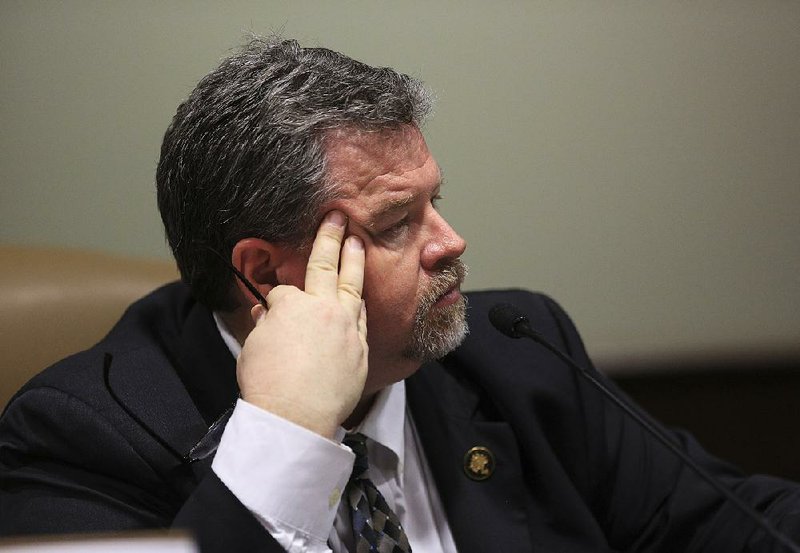Legislation filed this week would reduce the amount of special funds an impoverished school district receives if its students' reading abilities regress in consecutive years.
Senate Bill 349 by Sen. Alan Clark, R-Lonsdale, proposes decreasing the amount of National School Lunch State Categorical Funding a poor school district receives if for two years its students in the third through 10th grades perform worse on reading assessments than the year before. It would strip the funds completely if reading declines continue for a third-straight year. The bill was filed Monday.
Clark said Tuesday that the bill is meant to increase school districts' focus on reading, and he pointed to research that shows the importance of reading on overall student achievement and success.
National School Lunch State Categorical Funding is often confused with the federal program of a similar name that provides free or reduced-price lunches to students from poor families.
The state program simply uses the federal initiative's poverty metrics to distribute additional funding to school districts with high concentrations of kids living in poverty.
[RELATED: Complete Democrat-Gazette coverage of the Arkansas Legislature]
About 290,000 of the approximately 477,000 (61 percent) public school students in Arkansas qualify for free and reduced-price lunches, according to the Arkansas Department of Education. Students are eligible for the federal program if family income is up to 185 percent of the federal poverty level ($47,637 for a family of four in Arkansas).
School districts qualify for the Categorical Funding based on how many of their students benefit from the federal lunch-buying program.
In 2017, state school districts received more than $225 million in National School Lunch State Categorical Funding, according to the Bureau of Legislative Research.
The funding is disbursed at a per-student rate. That rate depends on which of three tiers a school district falls under; the tiers are determined by the percentage of students who qualify for free or reduced-price lunch.
Clark said it would likely be rare for a school district to ever lose money under his bill. If the district's reading achievement decreases one year, its teachers must complete training for reading education. The financial penalties wouldn't begin until consecutive years of declining achievement.
Metro on 02/20/2019
